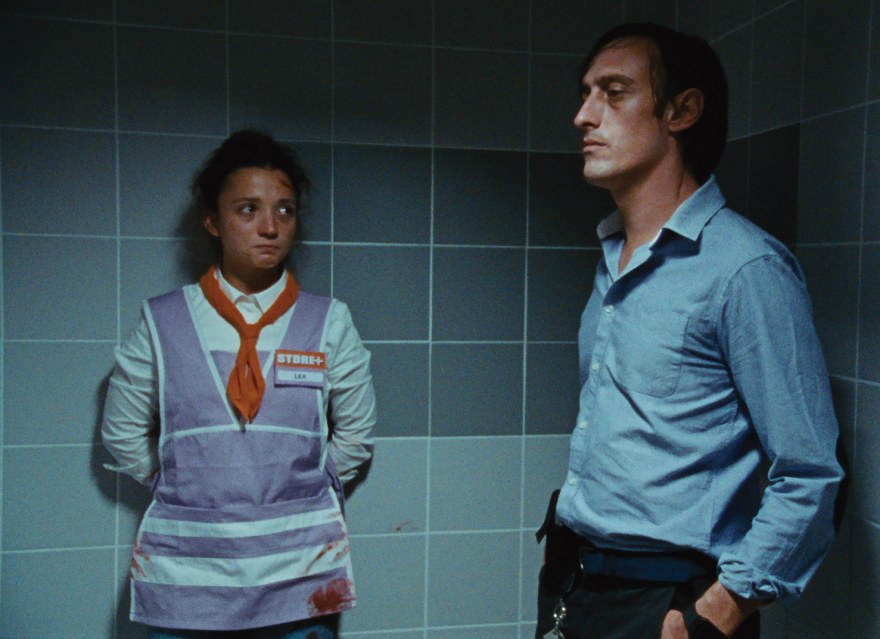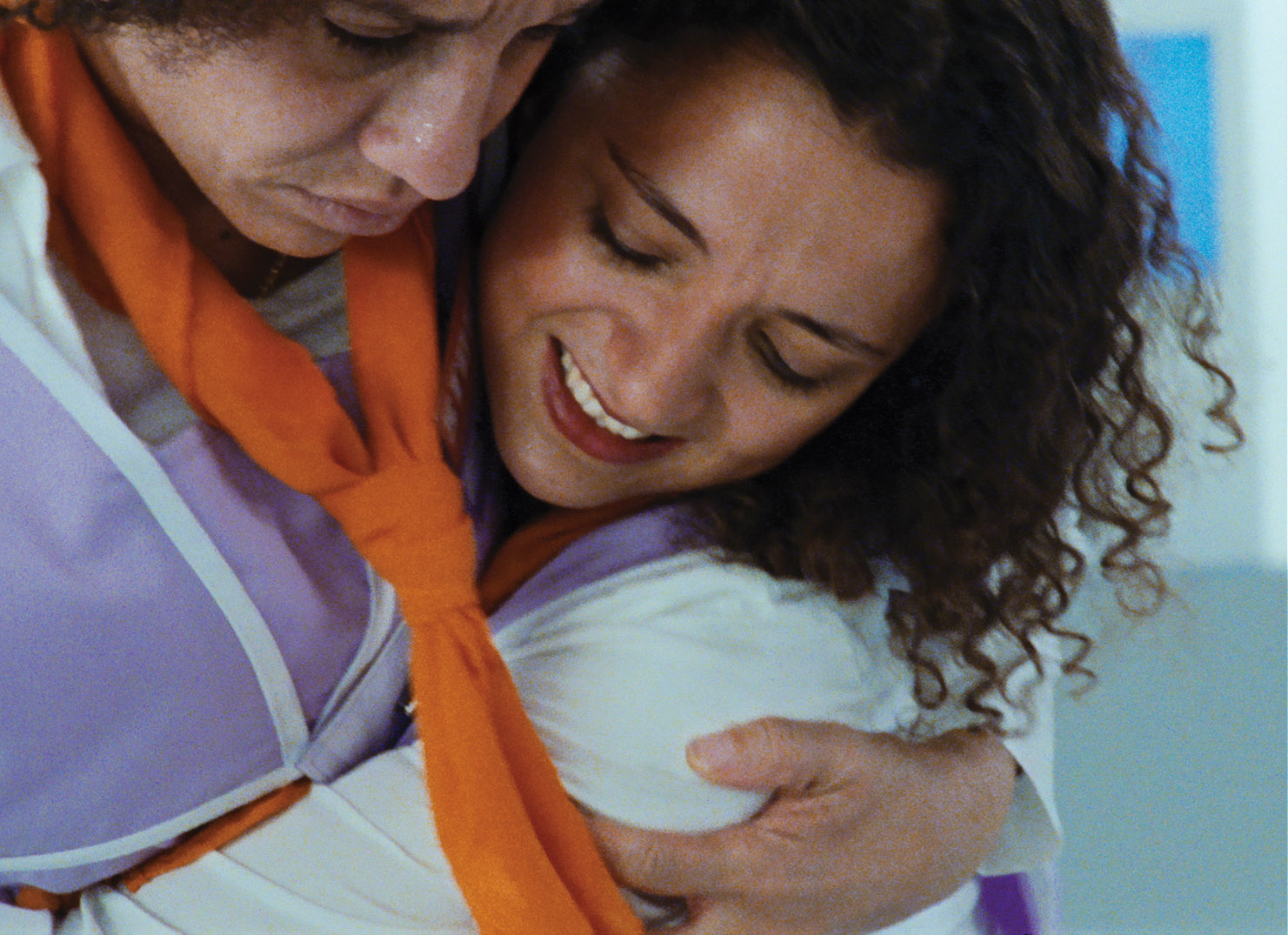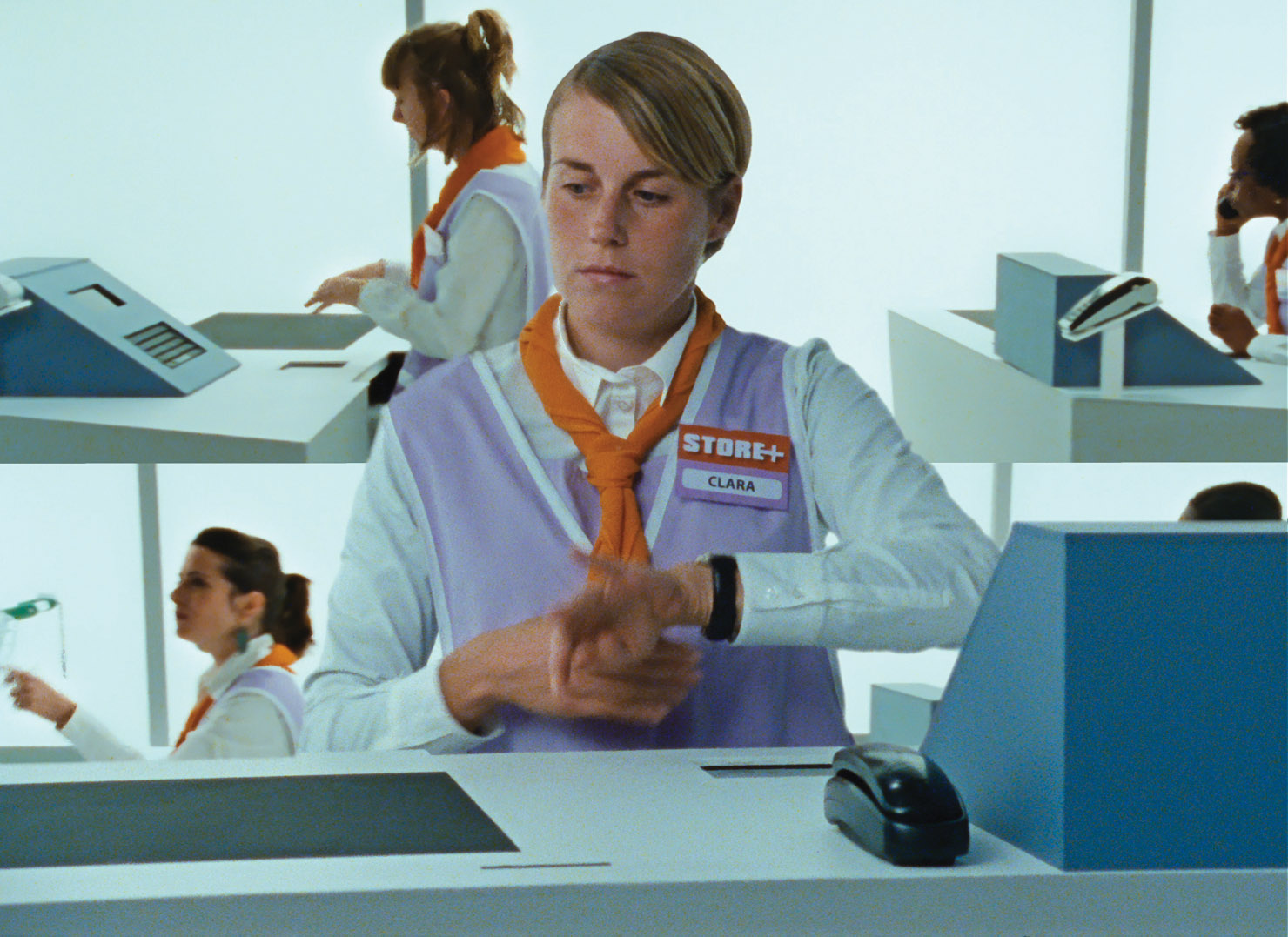Dinner with L’effort commercial
Interview with Sarah Arnold, director of L’effort commercial
Your film was inspired by a real event. Why did you decide to make this film based on this event?
L’effort commercial was the result of a call for projects initiative started by the association Femmes & Cinéma. In cooperation with the French TV channel France 3, their project was to produce films directed by women on the theme of young women at work. They received more than one hundred scenarios. As for me, they gave me the scenario written by Aline Crétinoir, a young script writer who is now at the Conservatoire européen d’écriture audiovisuelle. The other film created in this same structure is Max by Florence Hugues. The original scenario tells the story of a cashier and is based on Aline’s own experience. The action and the environment were replicated in a very realistic and convincing manner, but part of the story took place outside the supermarket. However I wanted a huis-clos, a unique setting. When I heard about Fadila, who had had a miscarriage at her cash register in a supermarket in Tourcoing, I immediately wanted to talk about that. I did a lot of research and I spoke to the local union at the supermarket. There was a tremendous sense of injustice in their remarks. Great anger as well. How do you prove that an embryo that detaches itself from the uterine wall is due to difficult working conditions? During the first three months, these things happen…. And yet, Woman knows. She feels it when her stress or outside conditions start “colliding” with her pregnancy. What’s interesting, I find, is that it’s when it begins to show, when the belly starts to get round let’s say, that the woman enters into a category of “holy bearer of the future.” We show her our best consideration, often casting an infantilizing gaze as if she were weak or fragile. But, when the belly starts to be visible, things are going well. The embryo has given way to a fetus and in the vast majority of cases, all’s good. It’s before that, precisely when it doesn’t show, when the hormones are turning the body and the mind upside down, that the woman is fragile and needs you to listen to her. Yet several times over, Fadila asked for her hours to be adjusted but this wasn’t granted. Why? Out of contempt? Racism? Worse? In order for that to happen which indeed did happen and to avoid having to pay maternity leave? You start to imagine all sorts of scenarios. For me, Fadila’s case is a broader symbol of a precarious work environment which is becoming widespread in countries such as France which want to be irreproachable in terms of labor laws.
The décor, de-realized, accentuates the aseptic world of supermarkets and its starkness makes the spectators focus their attention on the acting. Can you tell us a bit about this choice?
I didn’t want to make a film that was a “national reality” as some of my friends joke. One of these touching French films, weeping with truth, that soothes your conscience because you surprise yourself for feeling something, but which reassures you in the end because you are on the good side of the story. I thought it would be opportunistic to depend on this woman’s suffering to make a realistic film. Me, what do I know about her reality? The tactic that we employed with Eva Medin, the set designer, was, for me, a way to respect the subject. I’m not stealing anything from Fadila, I’m interpreting. By stripping away realism, we wanted this to be universal, and to eschew the anecdote.
The character Eric, through his rigidity and lack of affect, provokes a certain uneasiness. He’s an essential character who incarnates the rigidity and lack of compassion in the system. How did you work with Pascal Tagnati to achieve this result?
It’s he who creates that. Pascal has a particular way of acting, very “him.” It’s a mix of coldness and humor. He always shows a bit of self-mockery as well. That’s what I like about him. He’s very funny. It’s a sort of tragic comedy sense of humor that I like a lot. As I said earlier, we weren’t looking to create a realistic character. We wanted an ambiguous character. Someone who is trying to be nice and doesn’t realize his potential for aggression. It’s the management’s hypocrisy of “we’re a family” that is violent.
What reaction or reactions did you want the film to provoke with the spectator?
I don’t really know. Discomfort perhaps… I like films that make you uncomfortable. For me, the cinema is not the art of entertainment, it’s the art of disturbance.
What do you think the future holds for short films?
If it continues to be subsidized, the short film has a long life ahead! It’s an endless space of artistic freedom, a ground of self-discovery as an author. It’s also a domain of expression where you make fewer compromises than in feature length films. What saddens me, personally, is when the short film “mimics” the feature length. Tries to resemble it, to be perfect. You see a lot of that in the shorts that win a César. They are almost always films that resemble, in their form at least, a feature length. And that’s sad because I find that the short film should serve as a way to dare, to take risks.
L’effort commercial is being shown in the National Competition F12.











